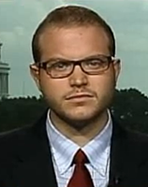 Tim Fernholz
Tim Fernholz
In the 2016 edition of its World Development Indicators, the World Bank has made a big choice: It’s no longer distinguishing between “developed” countries and “developing” ones in the presentation of its data.
The change marks an evolution in thinking about the geographic distribution of poverty and prosperity. But it sounds less radical when you consider that nobody has ever agreed on a definition for these terms in the first place.
The International Monetary Fund says its own distinction between advanced and emerging market economies “is not based on strict criteria, economic or otherwise.” The United Nations doesn’t have an official definition of a developing country, despite slapping the label on 159 nations. And the World Bank itself had previously simply lumped countries in the bottom two-thirds of gross national income (GNI) into the category, but even that comparatively strict cut-off wasn’t very useful.
“The main issue is that there is just so much heterogeneity between Malawi and Malaysia for both to be classified in the same group—Malaysia is more like the US than Malawi,” says Umar Serajuddin, a senior economist in the World Bank’s statistics office. “When we lump disparate countries together in the same group, it isn’t really useful.”
Part of the story is the success of development efforts in the last several decades. Consider this chart that plots countries on an axis of infant mortality and fertility in 1960 and 2013. In 1960, there are two clear groups—one with low mortality and fertility, one with much higher. By 2013, the countries have converged into a much tighter group.
The article's full-text is available here.











